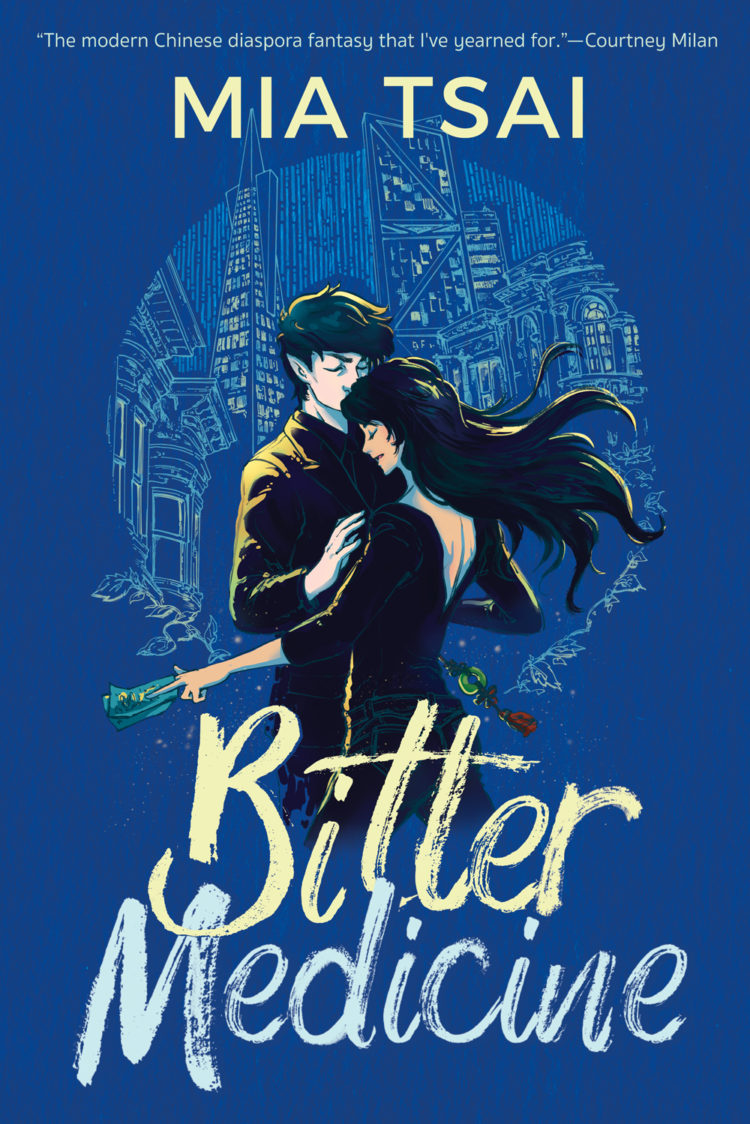Sweet and charming, Mia Tsai’s BITTER MEDICINE is utterly amazing
With just about two weeks until its March 14 release (the book, both physical and digital, is currently available for pre-order directly from Tachyon and other select outlets), excitement grows for Mia Tsai’s debut novel BITTER MEDICINE with exuberant reviews from BookTubers Always Doing and Monica the Bibliophilist, inclusion on Literary Hub‘s March’s Best Sci-Fi and Fantasy Books, and an interview with Lucy Houndom of Breaking the Glass Slipper podcast about xianxia and how to incorporate different cultural elements into one epic story. Lastly, Tsai contributes a guest post to Tea Time Lit.

Design by Elizabeth Story
This charming xianxia-inspired contemporary fantasy draws from Chinese mythology, as with Shénnóng, the Chinese god of medicine.
Literary Hub
Breaking the Glass Slipper
If you haven’t stumbled across one of the many popular xianxia dramas on your favourite streaming service, we might have to ask if you’ve been living under a rock. Shows like The Untamed have become global sensations – and we have to admit that at least 2 out of 3 of us were swept up in its wake. Sharing some of the epic fantasy tropes of Western literature that many listeners will be familiar with, xianxia also uses Chinese folklore and traditional religious practices to create its own blend of fantastical elements.
In this episode, we are joined by debut author, Mia Tsai, who is further mixing the two traditions, throwing in elves and an urban fantasy setting among ghosts, curses, and cultivators. We ask Mia more about xianxia and its sister genres, and how to go about incorporating different cultural elements into one epic story.
It feels like every Chinese and Taiwanese kid grew up with Journey to the West. Despite being born and raised in America, I still knew, if vaguely, about Sun Wukong, the Monkey King, and his trickster deeds as he thumbed his nose at the gods and flew around on a cloud, wielding a magic staff. There were cartoons, movies, and music about the Monkey King. There were puppets and puppet shows. Sun Wukong is quite possibly the most recognized and most beloved figure in Chinese mythology.
Tea Time Lit
I had access to very little of that while I was a kid except for what my mother told me and what I gleaned from watching TV shows with my family during the summers I visited Taiwan. Still, that magic was different from what I had been absorbing in the US: spells cast by witches and wizards, who could be good or bad; grimoires full of incantations and potion ingredient lists; strange ponds distributing swords; magic that always took a toll on the user. I watched Sun Wukong cartoons, marveling at how magic was present but not the focus. I watched puppet dramas where puissant warrior-monks flew around, their long hair streaming behind them, and clashed with swords and fists, the fights always ending with one party standing and the other party defeated, blood leaking from their mouth.
